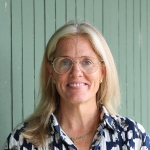Thank You for a Successful Campaign!
Robert W. Wilson Trust Challenge
Community support is critical to Shelburne Farms, and we are grateful to the Robert W. Wilson Trust for inspiring such broad based and generous support. The Trust's challenge grant is designated to the completion of the Coach Barn Rehabilitation Project.
The Campaign for Shelburne Farms
The Campaign is providing funds for Shelburne Farms to work toward its long-term vision of transforming education that is grounded in place and community and sharing an inspiring working farm campus for sustainability with visitors.
The $50,000,000 Campaign is allowing us to:
- Increase educational impact locally and internationally through the Shelburne Farms Institute for Sustainable Schools
- Conserve land in the heart of the farm and expand the walking trail network
- Enhance stewardship of natural, agricultural, and historic resources
- Advance the organization’s Climate Action plan
- Deepen the visitor learning experience around our mission
- Build capacity to ensure the organization’s success into the future
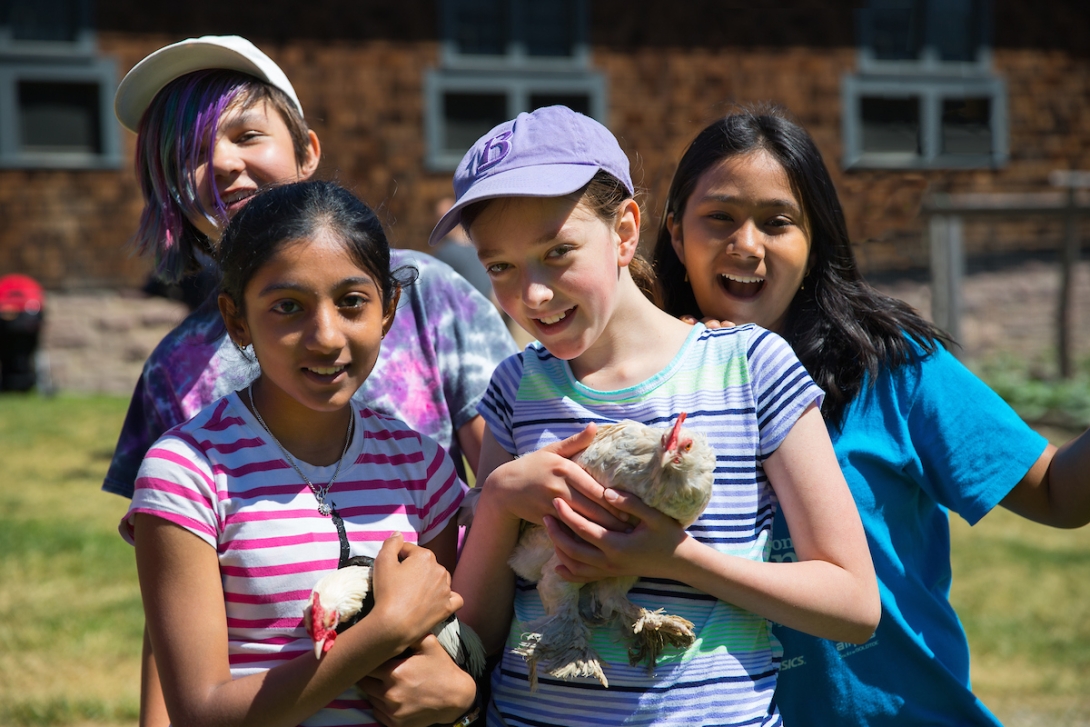
More than a place
“No other place I know combines such stunning natural beauty with a quiet groundswell of visionary commitment to stewardship and planetary thinking and doing. The place reminds you of the things that are important: community, the future, young people. It stirs up a deep, sweet hope that we can create a sustainable, socially just world! It really is more than a place. It’s a state of mind."
Campaign Elements
We invite you to explore the many transformational projects that the campaign is making possible. Please click on the + sign to learn more about each project below.
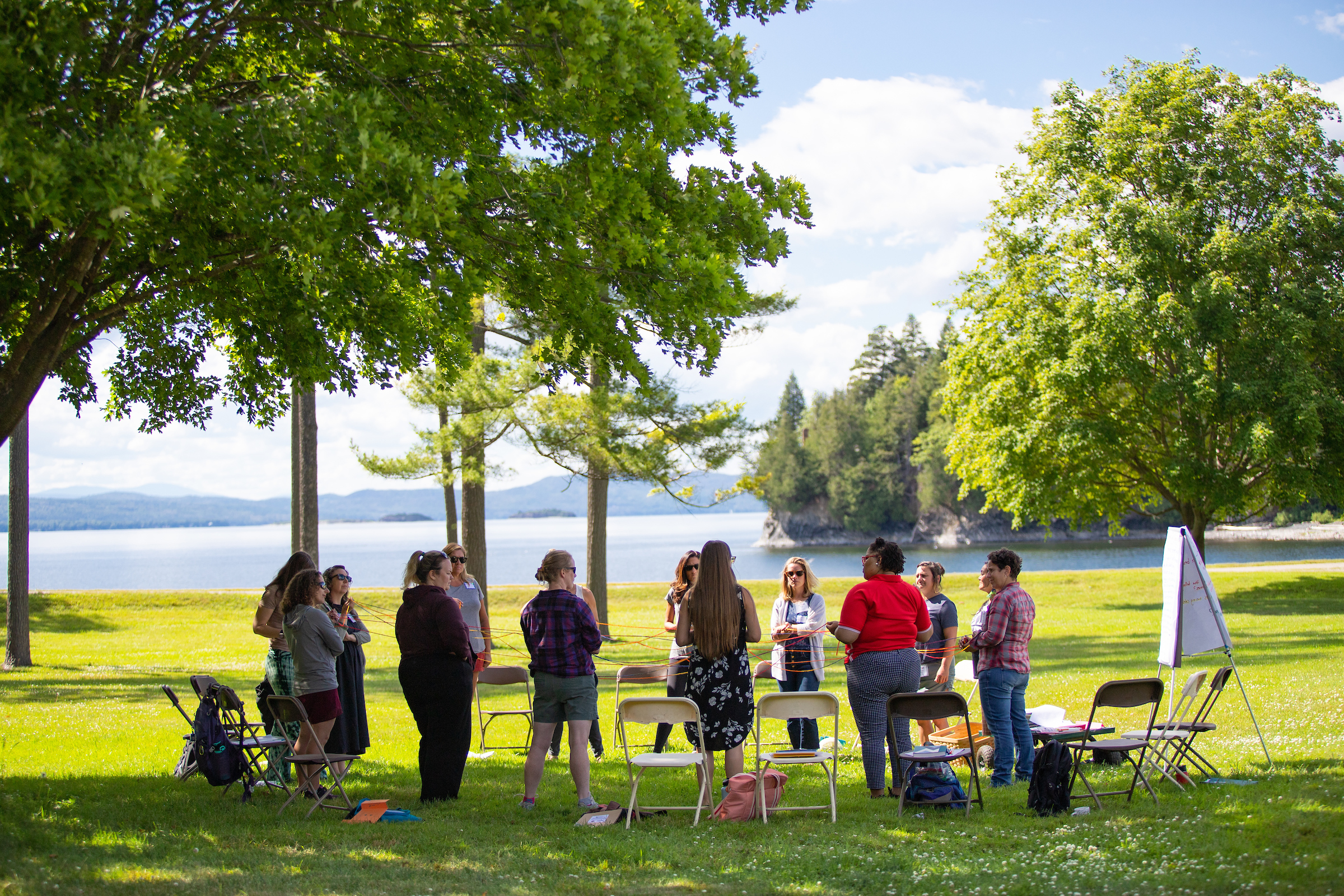
The Shelburne Farms Institute for Sustainable Schools is harnessing the Farm’s 50 years of experience in creating education programs and growing an international learning community and network of educators. The Campaign is making it possible for the Institute to serve educators both on and off the Farm campus, and offer a new Education for Sustainability (EFS) Graduate Certificate Program in collaboration with the University of Vermont and other higher education institutions. The Campaign provides seed working capital to support faculty, develop online open source educational resources, and expand program research, evaluation, and communications to increase the reach and impact of our professional learning opportunities for educators. The Institute will support international fellowships designed to grow EFS in communities around the world.
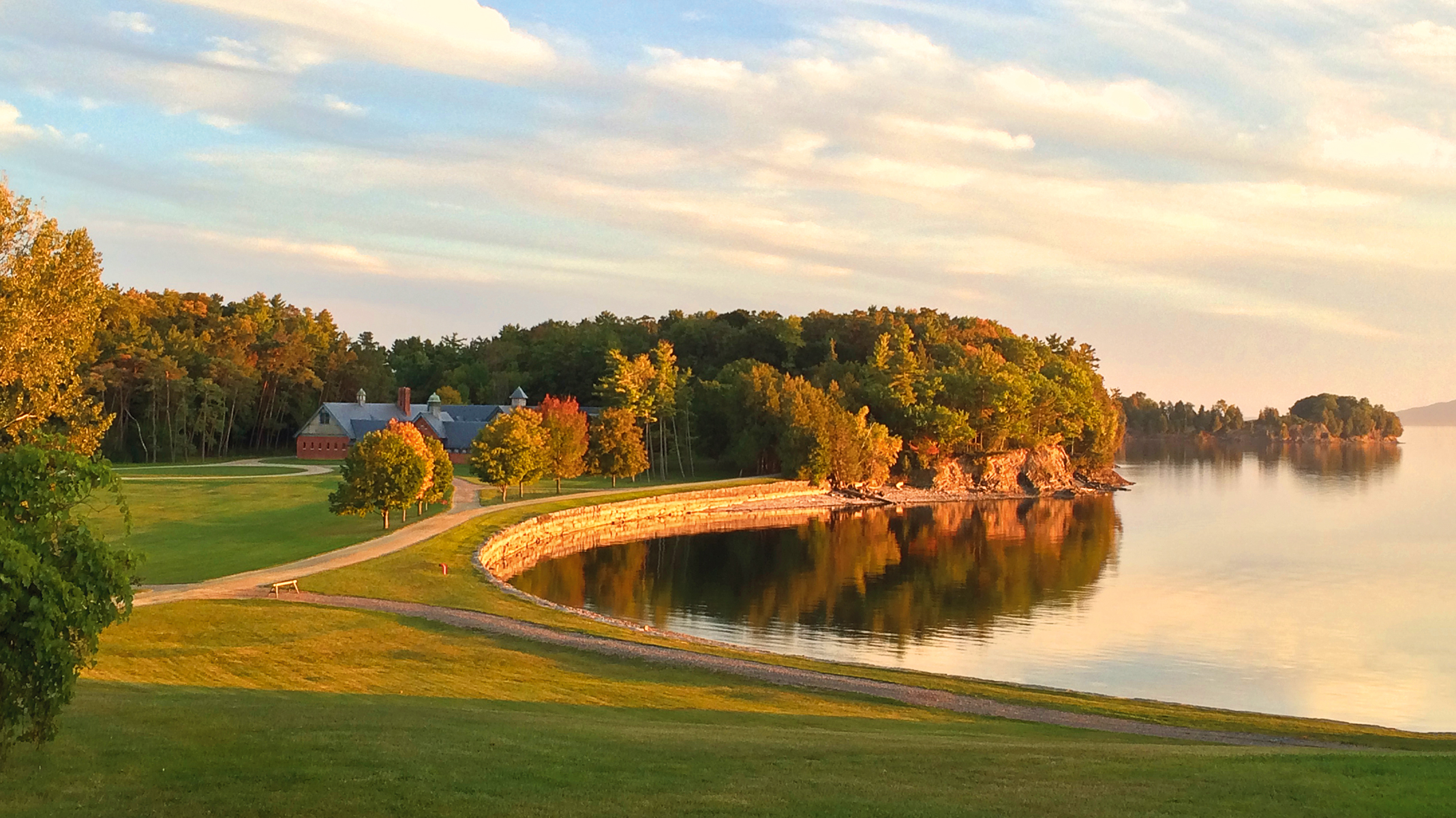
One of the best known and loved gathering and learning spaces at the Farm, the Coach Barn, has had few improvements over the years despite its high use. The Campaign will allow for essential upgrades, including electrical, lighting, fire and security systems, and exterior repairs. The kitchen/food service area will be redesigned to better support program workshops, community events and gatherings. The aging heating plant will be replaced with a new geothermal powered system.
Institute for Sustainable Schools participants attending programs on the Shelburne Farms campus stay at our Inn and guest houses and use meeting spaces at the Coach Barn and Orchard Cove retreat. Orchard Cove, a secluded lakefront residence located just south of the Coach Barn, will be improved as a retreat facility with an outdoor meeting space, and a renewably powered heating system.
LEARN MORE about the Coach Barn project, with architectural renderings and a virtual walkthrough of the future Coach Barn.
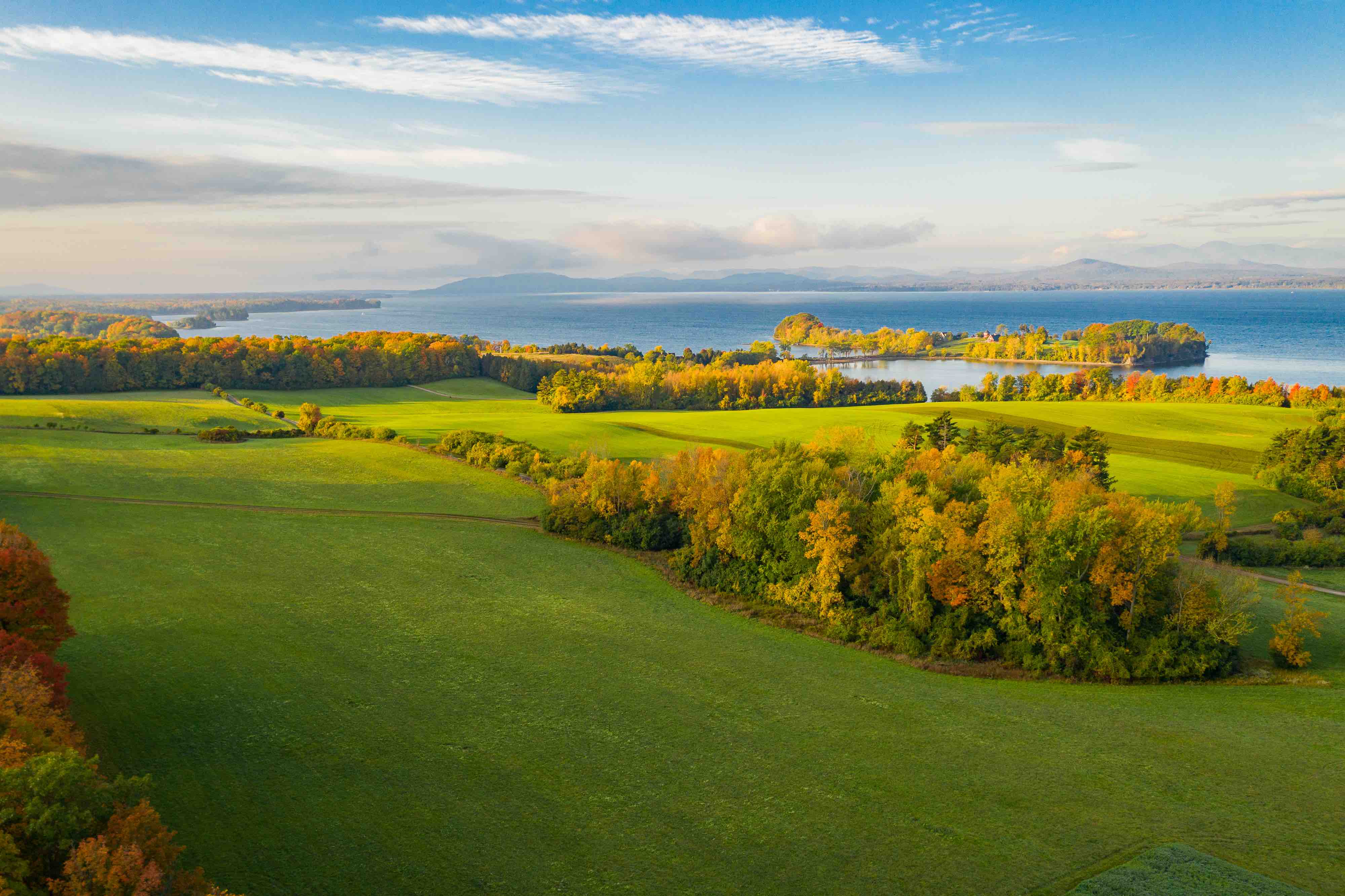
The Windmill Hill Conservation Project is a once in a lifetime opportunity to protect an unusually beautiful and productive part of Vermont’s working landscape for farming, wildlife, public enjoyment, and advancement of farm-based education. Conserving the Windmill Hill area is critical since it adjoins the Farm’s residential learning facilities and serves as an outdoor classroom for education programs and a beautiful space for reflection and renewal.
Shelburne Farms’ ability to inspire learning for a sustainable future is grounded in the stewardship of its working farm. Financial decisions critical to the survival of the nonprofit in the 1980s, coupled with an unexpected land protection opportunity in the 1990s, left three private residential parcels totaling 36.8 acres in the center of the property. Because they are critical to the long-term campus “protected area” plan, Shelburne Farms has recently secured these parcels at significant expense with a combination of contributed and borrowed funds. The Campaign makes it possible for this beautiful agricultural land in the heart of the campus to become an integral part of the Farm, including an expanded walking trail network. Gifts toward the Windmill Hill Project will create a meaningful legacy linked to this exceptional land forever.
Read more about the Windmill Hill Project!
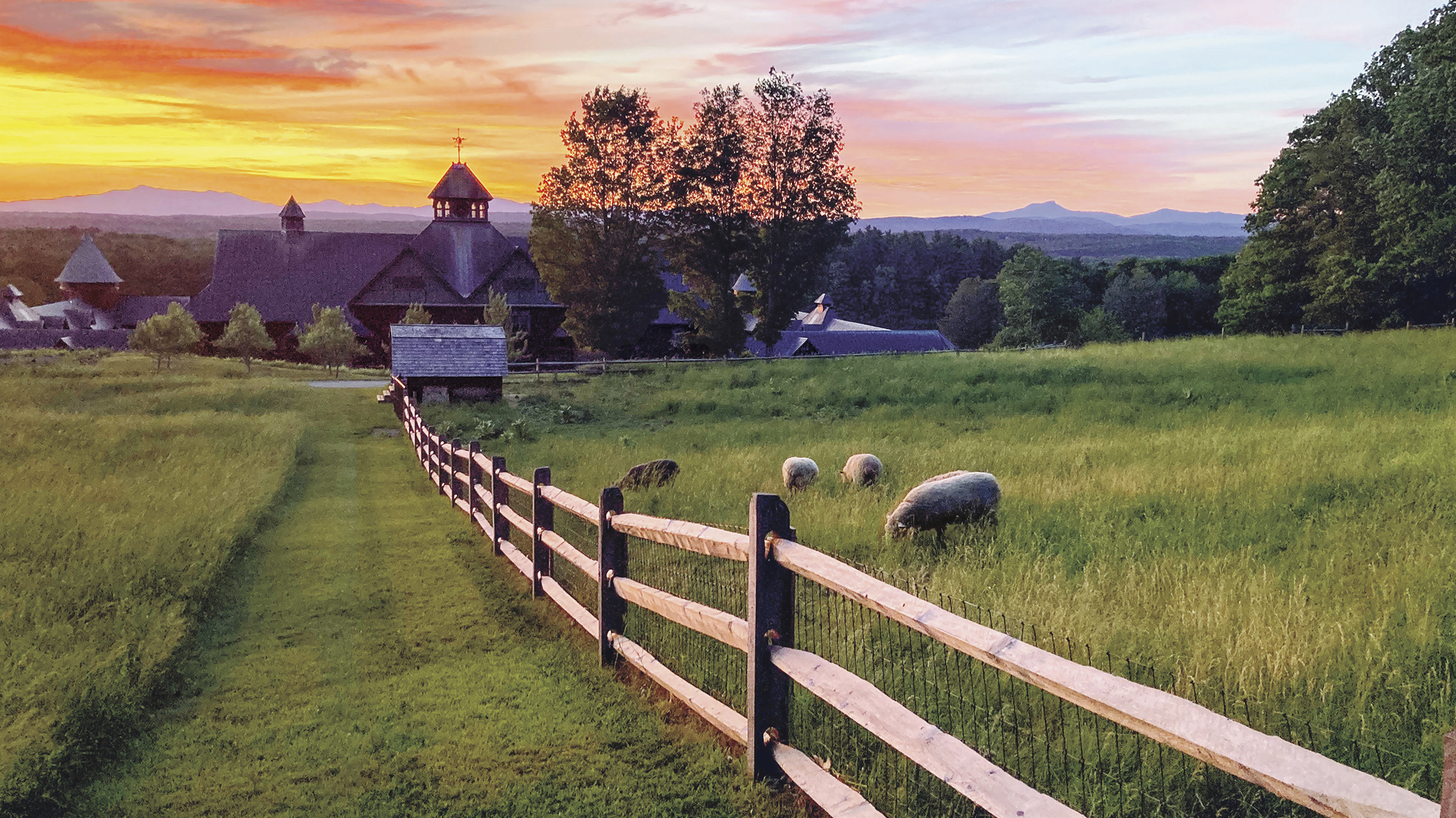
An educational organization and historic property as extensive as Shelburne Farms requires substantial financial reserves. Shelburne Farms’ current endowment is undersized for an organization with a $13M budget, just 3% of its annual operating revenue. Given the need, increasing the current endowment by $5M is a relatively small but critical next step. The goal is to set Shelburne Farms on a trajectory for significantly increasing investment reserves over time. This will be accomplished through current and planned giving that will continue beyond the completion of this campaign. A strong investment fund and income stream is a key part of the plan for assuring the Farm’s future financial sustainability.
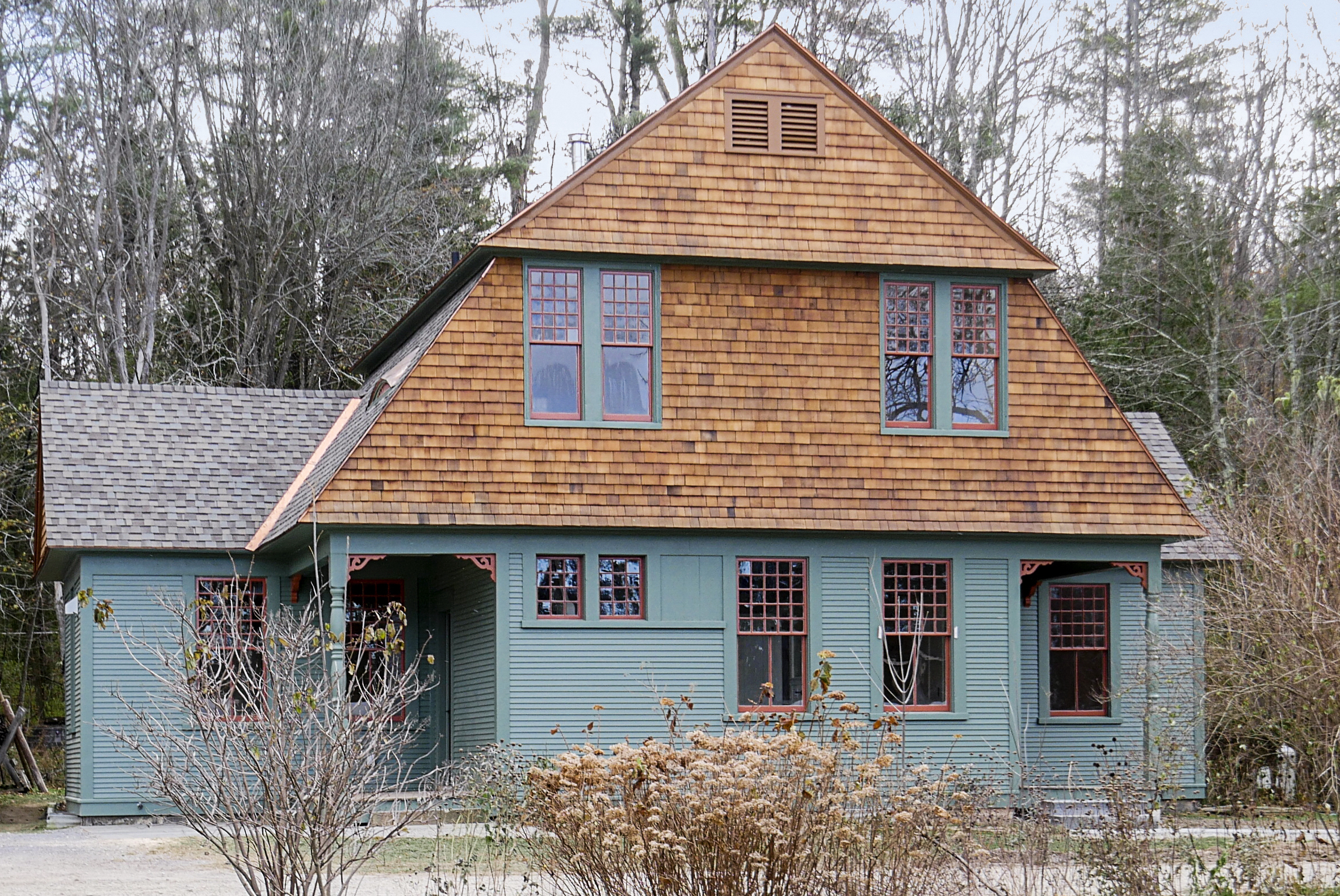 In addition to the principal structures (Shelburne House, Coach Barn, Farm Barn, and Breeding Barn), the property’s smaller historic houses are important contributors to the Farm’s National Historic Landmark status. The Campaign includes the purchase of the historic Treehouse guest cottage near the Inn. Other historic houses on the property have suffered from deferred maintenance and many support the critical need for staff housing. Renovations to the Coachman’s House will allow for expanded residential facilities for program participants and guests. The historic Market Garden and Farm Barn Cottages have been completely renovated and preserved thanks to early gifts to the campaign.
In addition to the principal structures (Shelburne House, Coach Barn, Farm Barn, and Breeding Barn), the property’s smaller historic houses are important contributors to the Farm’s National Historic Landmark status. The Campaign includes the purchase of the historic Treehouse guest cottage near the Inn. Other historic houses on the property have suffered from deferred maintenance and many support the critical need for staff housing. Renovations to the Coachman’s House will allow for expanded residential facilities for program participants and guests. The historic Market Garden and Farm Barn Cottages have been completely renovated and preserved thanks to early gifts to the campaign.
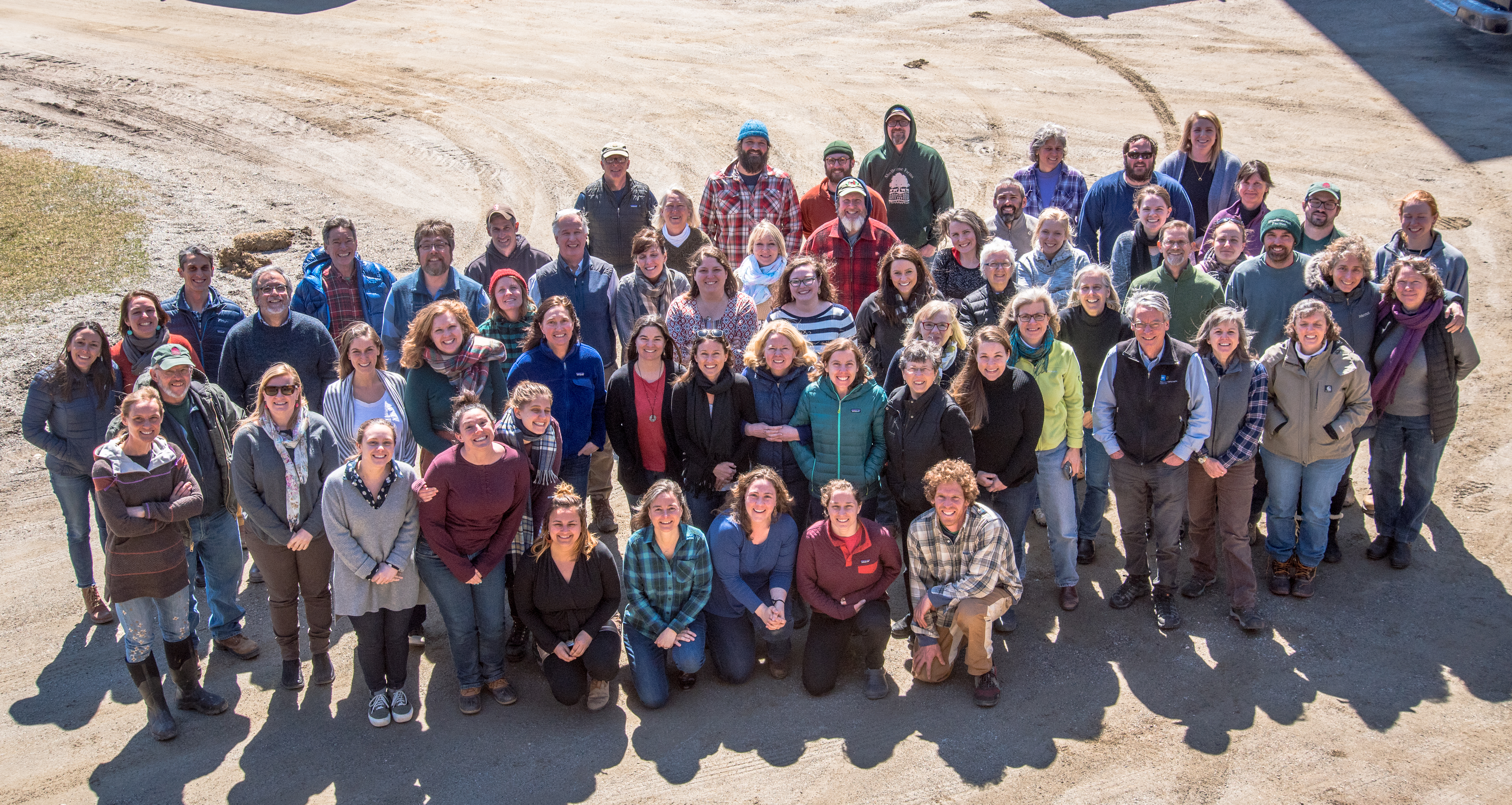
There is a long-term need for additional on-campus housing to accommodate key staff and faculty positions for the organization’s education programs and enterprises. Strategic purchases funded through the Campaign include two cottages for future staff housing located adjacent to the Farm’s access road to neighboring Meach Cove Farms. In addition, Campaign funds will be used to increase net zero staff housing capacity.
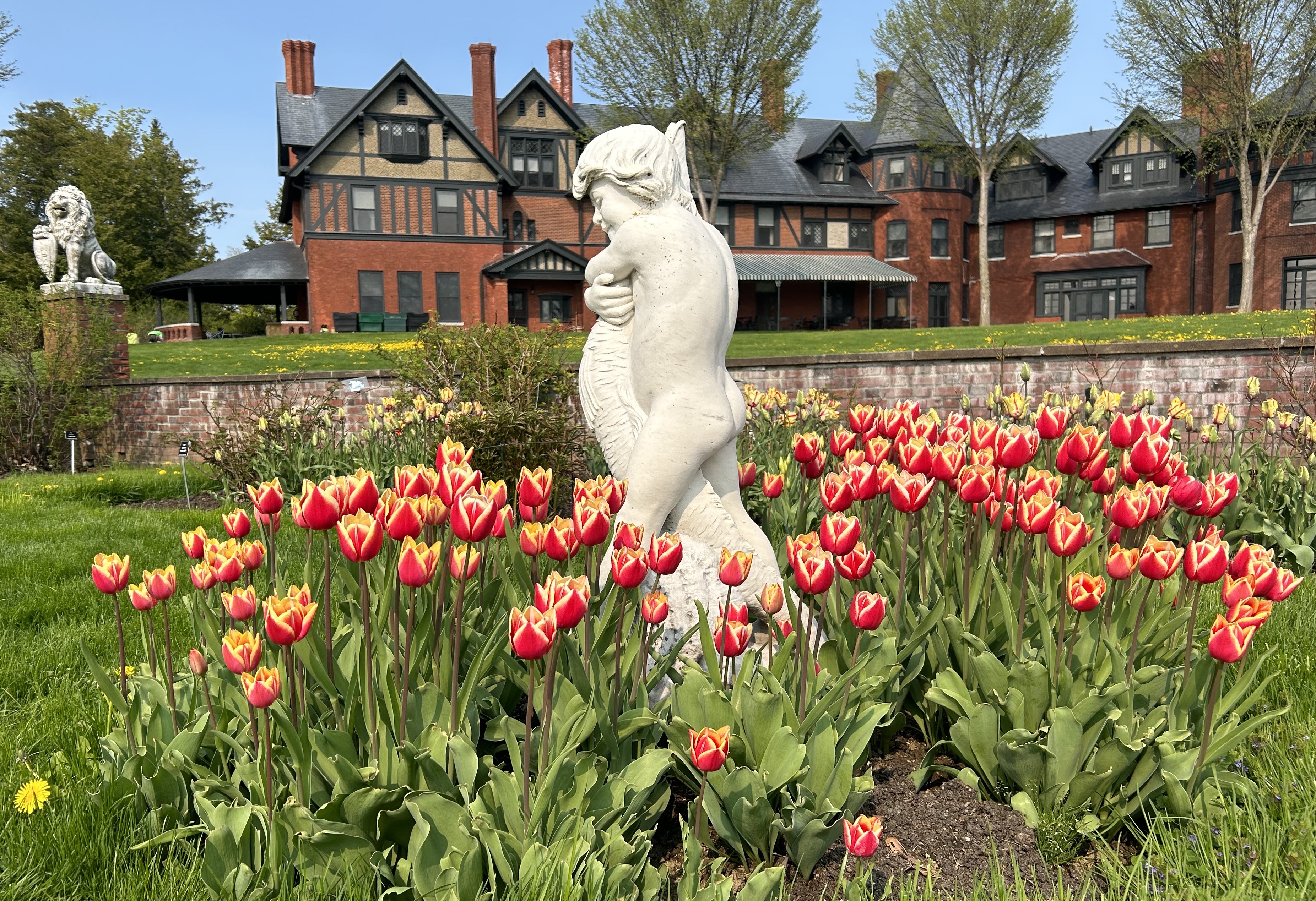 The Shelburne Farms Inn, originally built in 1888 and locally referred to as the “Shelburne House,” requires ongoing building improvements and repairs to preserve and sustain this historic structure, including increasing accessibility, chimney repairs, lightning protection, and building infrastructure improvements. Needed renovations and upgrades to the Inn’s commercial kitchen were completed with early campaign support. Renewal of the beautiful Flower Gardens is part of the Campaign goal to enhance the visitor experience.
The Shelburne Farms Inn, originally built in 1888 and locally referred to as the “Shelburne House,” requires ongoing building improvements and repairs to preserve and sustain this historic structure, including increasing accessibility, chimney repairs, lightning protection, and building infrastructure improvements. Needed renovations and upgrades to the Inn’s commercial kitchen were completed with early campaign support. Renewal of the beautiful Flower Gardens is part of the Campaign goal to enhance the visitor experience.
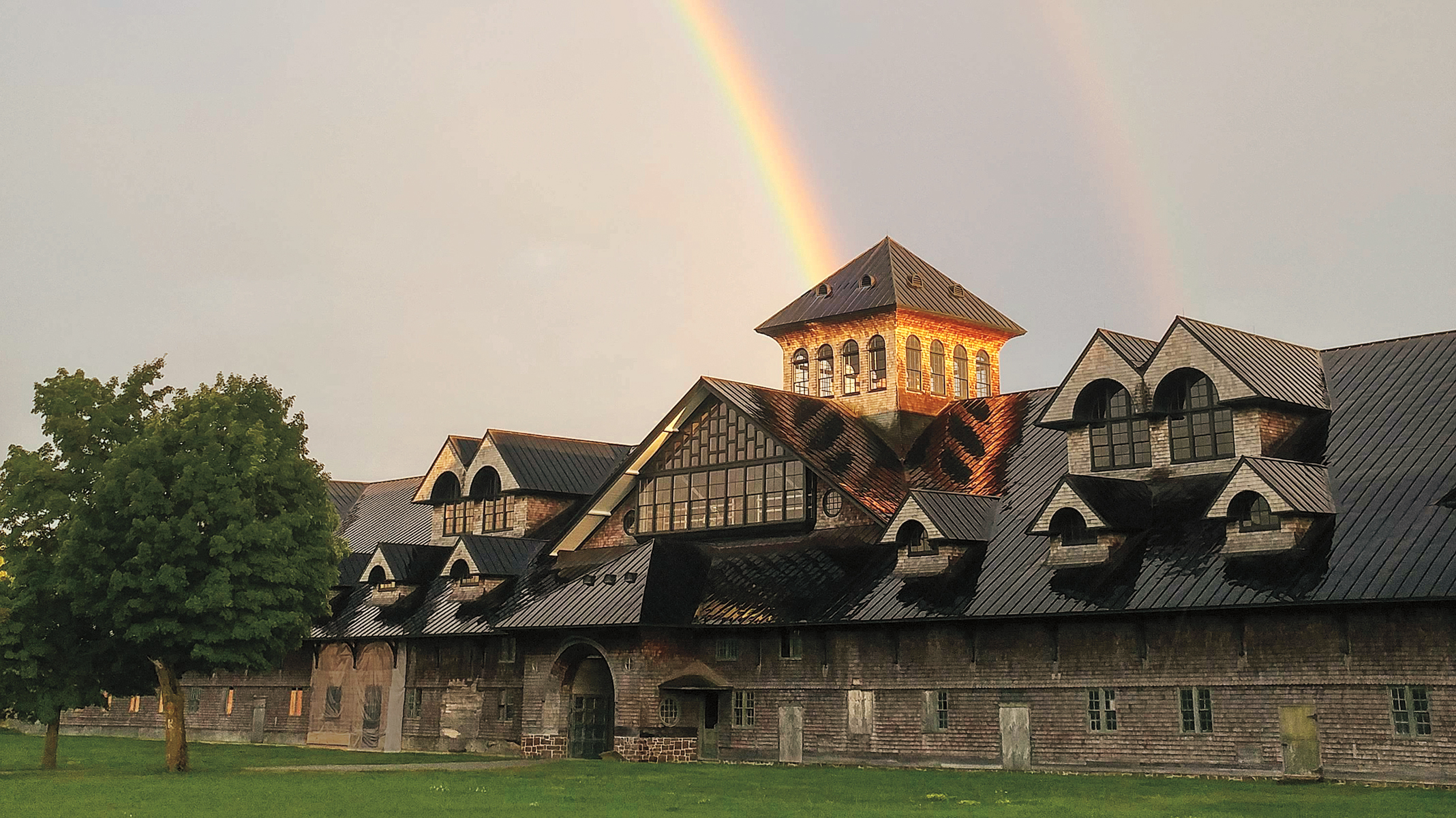 The historic 1891 Breeding Barn is one of the great barns in America and is a primary contributing structure to the 2001 designation of Shelburne Farms as a National Historic Landmark District. Since acquiring it in 1994, the Farm has performed extensive stabilization and preservation work to this magnificent and architecturally significant building. Campaign funding enabled completion of exterior repairs and fire safety systems for the Breeding Barn, setting the stage for developing its future use for mission advancing activities.
The historic 1891 Breeding Barn is one of the great barns in America and is a primary contributing structure to the 2001 designation of Shelburne Farms as a National Historic Landmark District. Since acquiring it in 1994, the Farm has performed extensive stabilization and preservation work to this magnificent and architecturally significant building. Campaign funding enabled completion of exterior repairs and fire safety systems for the Breeding Barn, setting the stage for developing its future use for mission advancing activities.
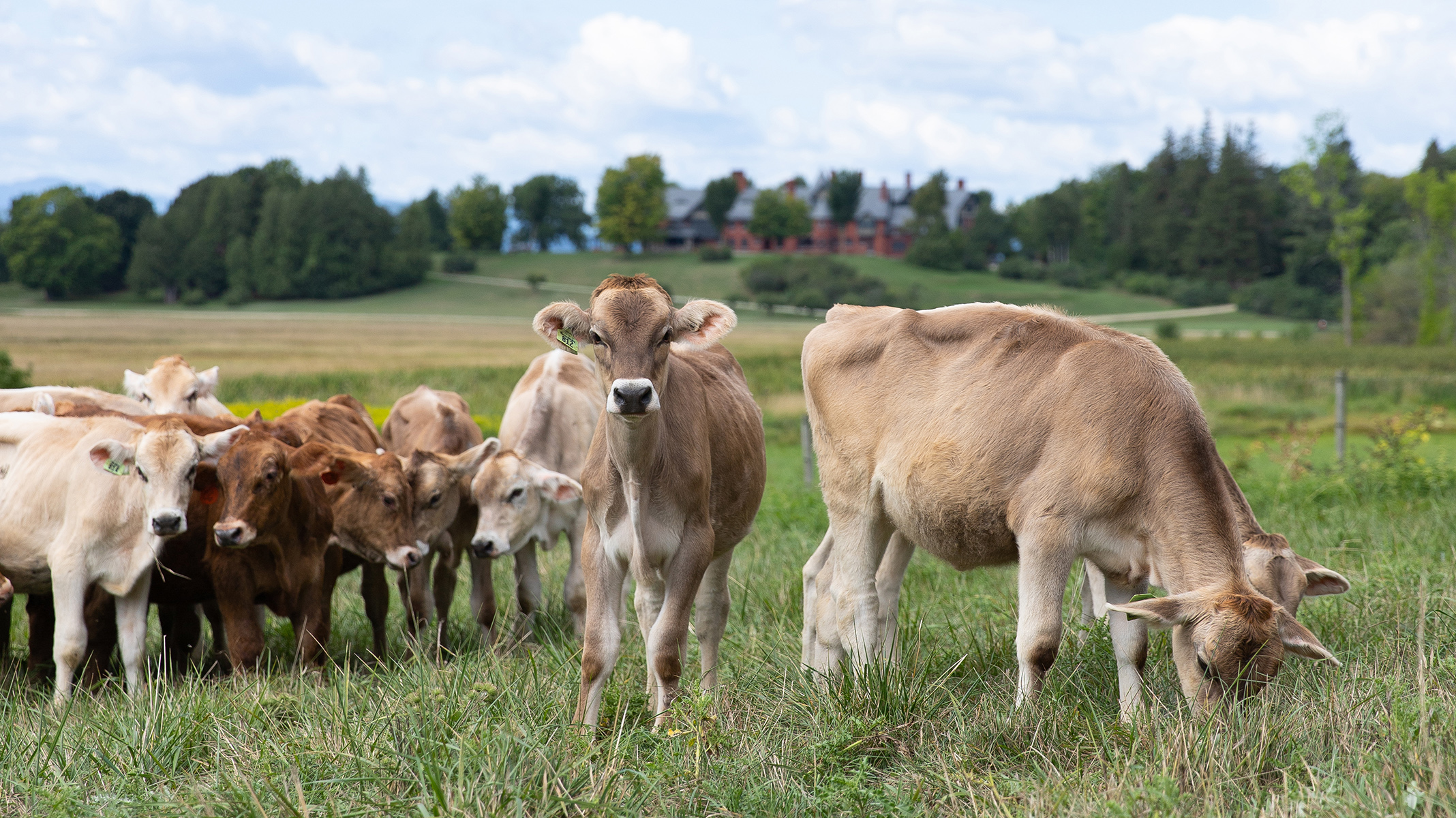 Shelburne Farms has an extensive campus requiring continuing investments in infrastructure. The Farms’ aging water lines, installed more than 100 years ago, are being upgraded to meet state requirements and provide adequate flows for operations and a new fire suppression system for the Coach Barn. In order to add capacity and redundancy, construction of a new water main between the town waterline on Bay Road and the Shelburne Farms reservoir is also needed. After decades of innovation in sustainable agriculture, we remain committed to being a working farm. Given the age of the dairy’s current facilities, improvements are needed to support our climate action goals and optimize land and livestock management practices. With growing maintenance support functions and new uses of the Breeding Barn, planning for improved Buildings and Grounds facilities is also underway.
Shelburne Farms has an extensive campus requiring continuing investments in infrastructure. The Farms’ aging water lines, installed more than 100 years ago, are being upgraded to meet state requirements and provide adequate flows for operations and a new fire suppression system for the Coach Barn. In order to add capacity and redundancy, construction of a new water main between the town waterline on Bay Road and the Shelburne Farms reservoir is also needed. After decades of innovation in sustainable agriculture, we remain committed to being a working farm. Given the age of the dairy’s current facilities, improvements are needed to support our climate action goals and optimize land and livestock management practices. With growing maintenance support functions and new uses of the Breeding Barn, planning for improved Buildings and Grounds facilities is also underway.
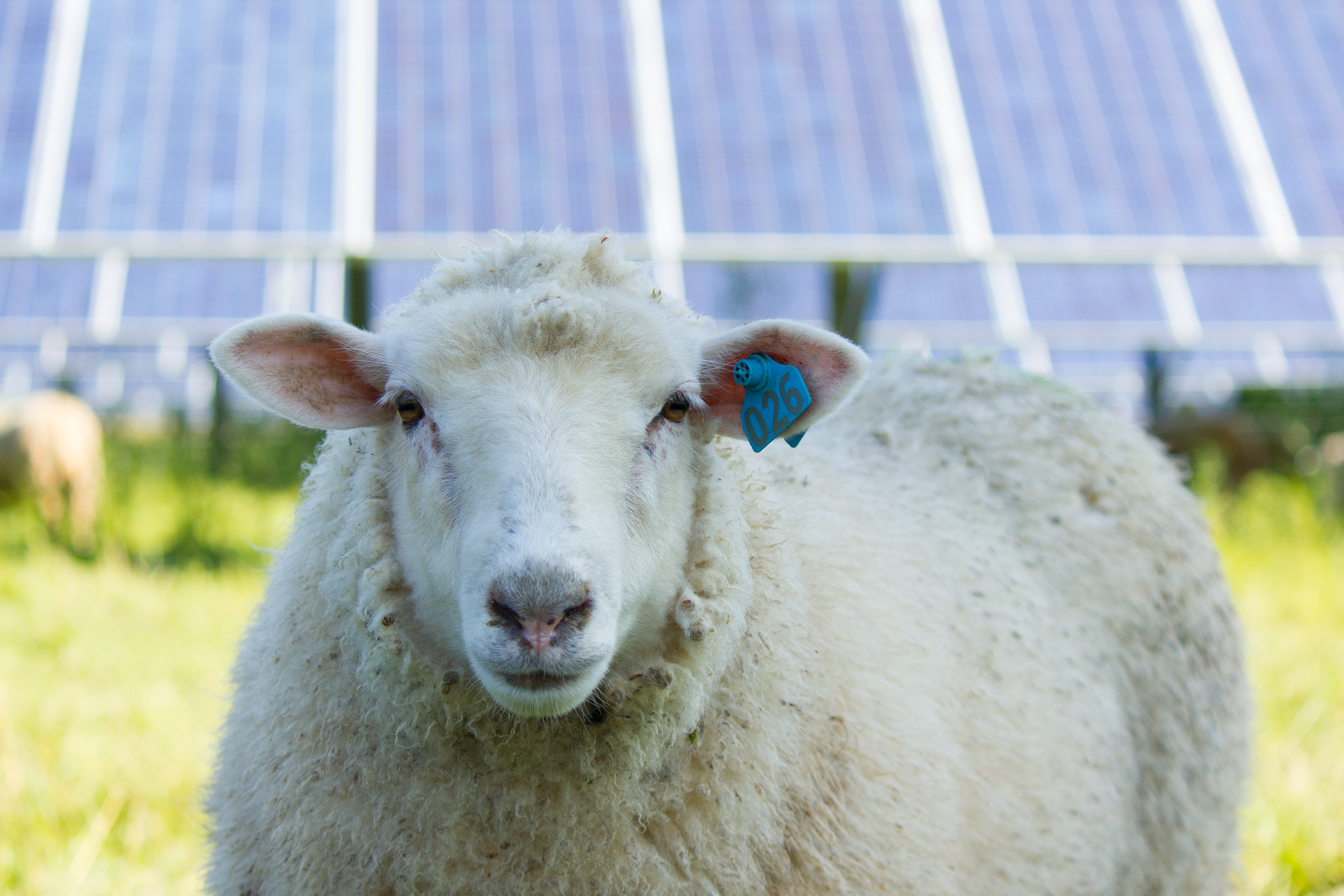 The global urgency of addressing climate change is an over- arching concern. Shelburne Farms’ climate action response is reflected in all future planning. The Campaign is supporting investments in climate change education program development, along with planning for campus and operational improvements, including land management, green building, and renewable energy initiatives. Learn more about our Climate Action Plan.
The global urgency of addressing climate change is an over- arching concern. Shelburne Farms’ climate action response is reflected in all future planning. The Campaign is supporting investments in climate change education program development, along with planning for campus and operational improvements, including land management, green building, and renewable energy initiatives. Learn more about our Climate Action Plan.
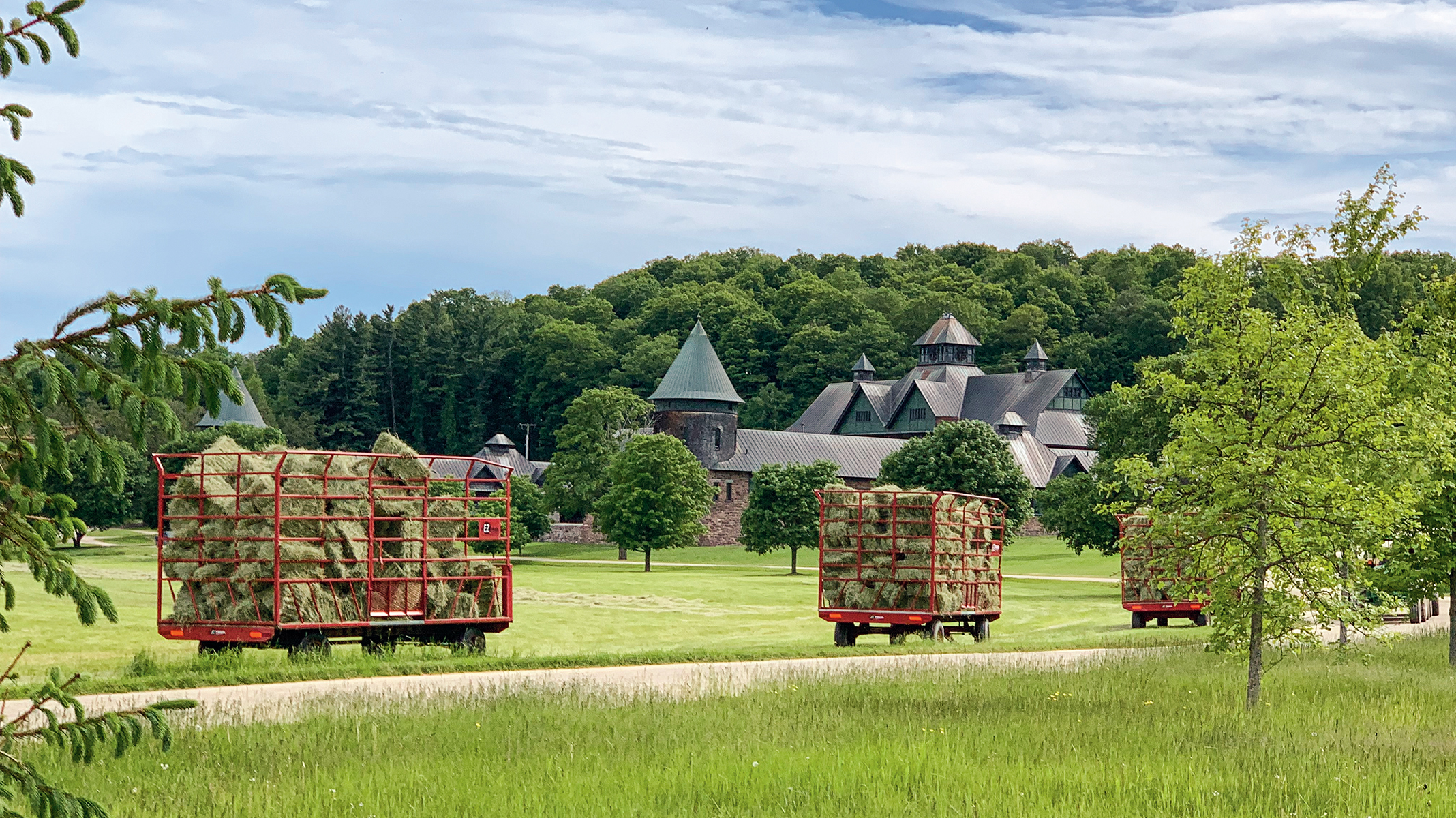 The majestic Farm Barn that houses the Children’s Farmyard, McClure Center for School Programs, farm enterprises, and administrative and education offices serves as the Farm’s headquarters for education programs and farm stewardship activities. The Campaign includes funds for building improvements and stewardship of the historic structure, including fire safety systems and reconstruction of the historic courtyard walls.
The majestic Farm Barn that houses the Children’s Farmyard, McClure Center for School Programs, farm enterprises, and administrative and education offices serves as the Farm’s headquarters for education programs and farm stewardship activities. The Campaign includes funds for building improvements and stewardship of the historic structure, including fire safety systems and reconstruction of the historic courtyard walls.
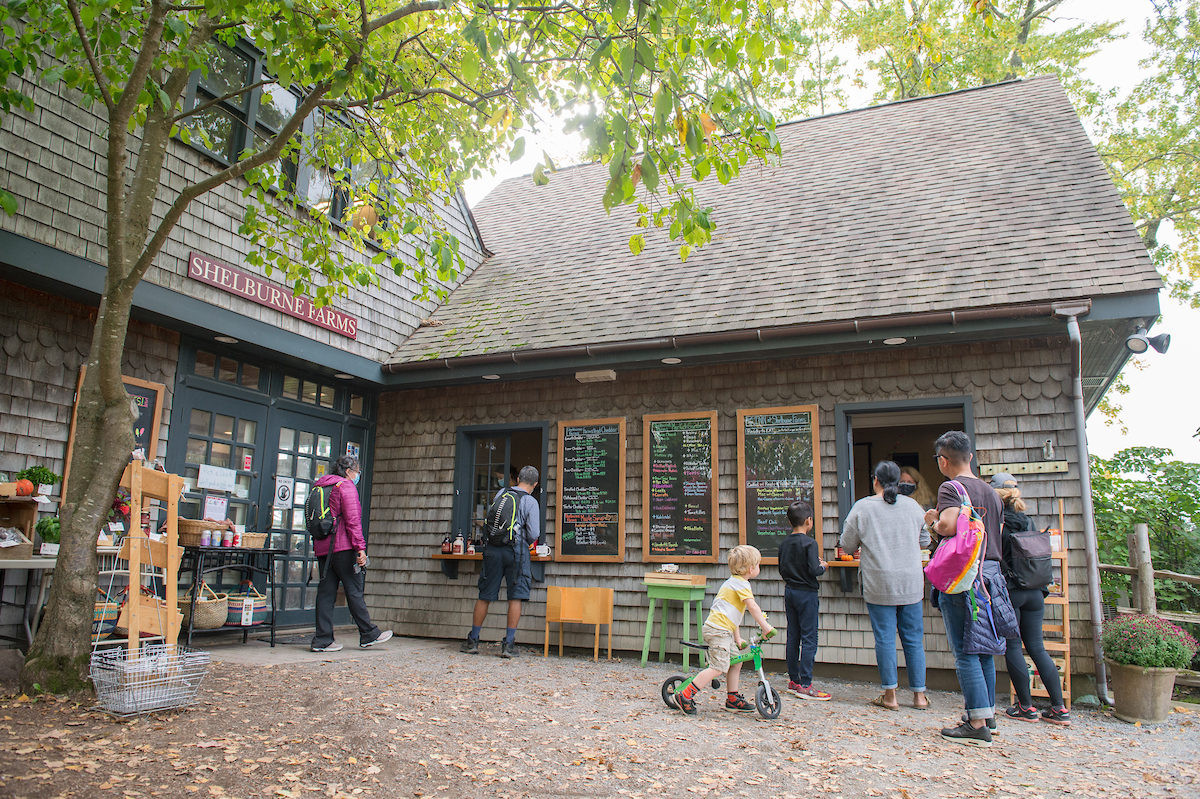 The Campaign supports deepening the visitor experience by using the farm as a living classroom. The walking trail network will be expanded and tours reimagined to celebrate a complete story of the land and include additional learning opportunities based on Climate Action initiatives and sustainable stewardship practices.
The Campaign supports deepening the visitor experience by using the farm as a living classroom. The walking trail network will be expanded and tours reimagined to celebrate a complete story of the land and include additional learning opportunities based on Climate Action initiatives and sustainable stewardship practices.
The Welcome Center & Farm Store building that visitors first encounter when they arrive at Shelburne Farms has had few improvements since 1986, despite visitor numbers quadrupling since then. The current Welcome Center is being adapted to better accommodate farm product sales and to serve as the trailhead for an expanded network of walking trails, including the new Windmill Hill trails. The Campaign includes funds for developing conceptual plans for an expanded facility to better serve as the Farm’s hub for visitor learning and engagement, highlighting farm products and with a cafe serving locally grown and raised foods.
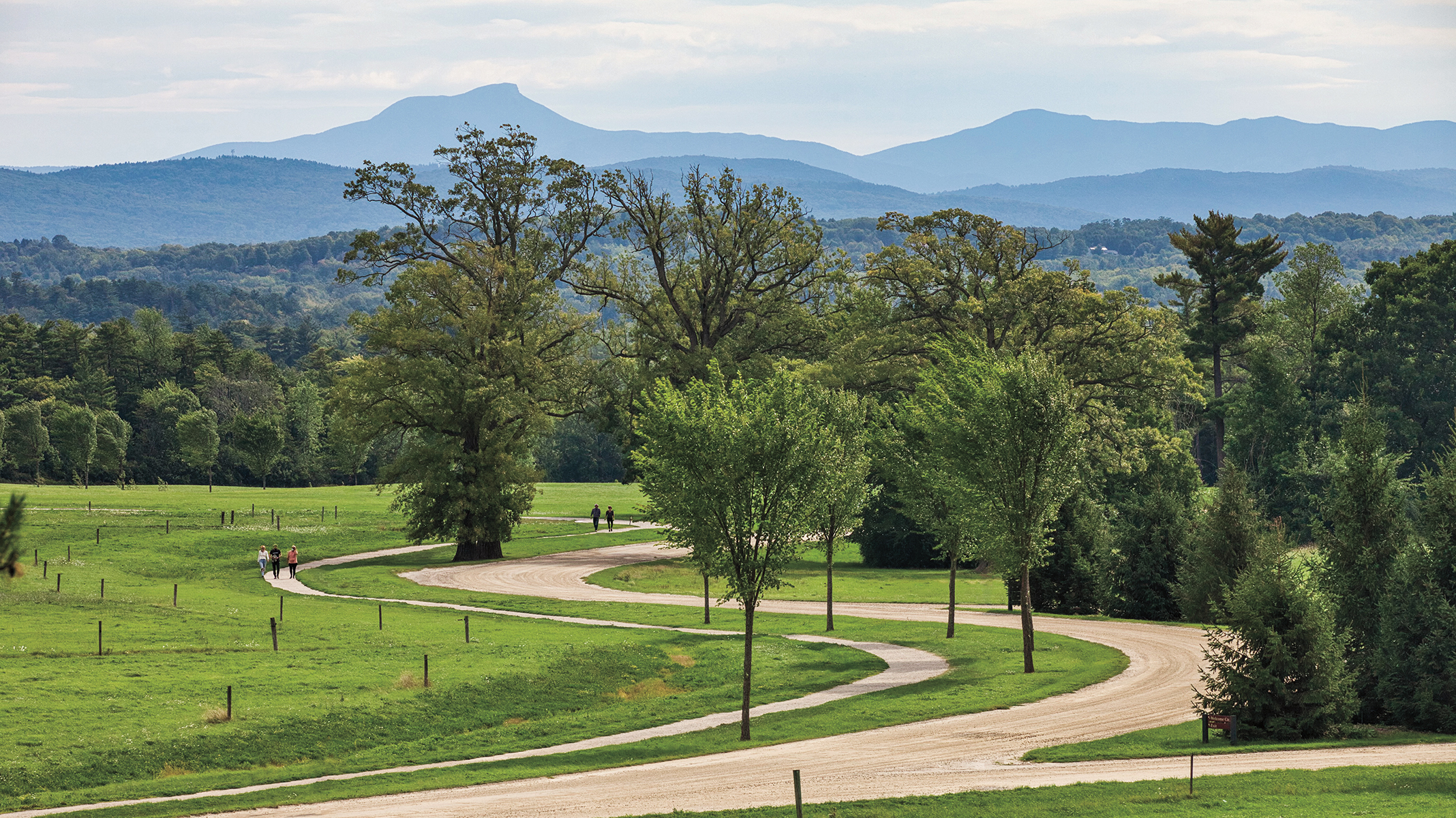 The sweeping views and breathtaking landscape captivate many who visit the Farm. The Olmsted inspired landscape includes many plantings that are reaching the end of their natural life and need replacing with consideration for safety, current diseases, and changing climate conditions. One example is the allee of trees along Poplar Drive, where new young trees are part of the landscape renewal process that continues the Olmsted legacy.
The sweeping views and breathtaking landscape captivate many who visit the Farm. The Olmsted inspired landscape includes many plantings that are reaching the end of their natural life and need replacing with consideration for safety, current diseases, and changing climate conditions. One example is the allee of trees along Poplar Drive, where new young trees are part of the landscape renewal process that continues the Olmsted legacy.
The Campaign includes funding to build capacity and resiliency in the leadership team and at all levels of the organization. As a result, Shelburne Farms will have a staffing structure in place for future management transitions. Funds will also be allocated to offset increased annual operating investments in staff, programs, and campus stewardship. Contingency reserve funds will provide some flexibility as budget adjustments and scopes of work evolve as the campaign progresses. Campaign expenses for this multiyear fundraising effort, including cost for campaign counsel, staff, communications, publications, and events, are included in this element.
You're invited to join us on this journey
The magic of Shelburne Farms is revealed around every curve in the path, every educator’s “aha” moment, every child’s joyful voice confirming that the wonders of nature are amazing and real.
At a time when natural and human systems are deteriorating at an alarming rate, Shelburne Farms is a source of hope for a sustainable future. It inspires passionate devotion yet defies easy description. Many come to feel it is their adopted spiritual home. Drawing sustenance from the land, the trees, water and architecture of this vibrant experiment in agriculture and education, every aspect of the Farm contributes to the vision of a healthy and just world rooted in stewardship and community.
The nonprofit was started in 1972 with the goal of using the Farm’s unique resources to address global environmental and social concerns. The transformative gift of the property to the nonprofit, multiplied by the generosity and care of many donors over the decades has established Shelburne Farms as an organization and a place that truly has the power to inspire and change lives. Yet, it’s at a pivotal moment again.
The time has come to increase the impact and outreach of educational programs and to ensure the stewardship of this beautiful and much-loved treasure as a guide for future generations’ quest for sustainability.
This can only be accomplished through the philanthropic commitment of everyone who cherishes what Shelburne Farms is and has the potential to be.
Join us on this journey.
Ernie Pomerleau, Honorary Chair; Lisa Steele, Honorary Chair; Eileen Growald, Campaign Co-Chair; Landon Storrs, Campaign Co-Chair; Fred Bay, Development Committee Chair. Steering Committee members: Bob Baird, Will Jackson, Steve Johnson, Ian Schmidek, Charlotte Stetson. Staff: Alec Webb, President; Megan Camp, Executive Vice President and Program Director, Robin Turnau, Chief Advancement Officer; Heidi Webb, Leadership Philanthropy Officer.
Contact Us with Questions or to Make a Gift



